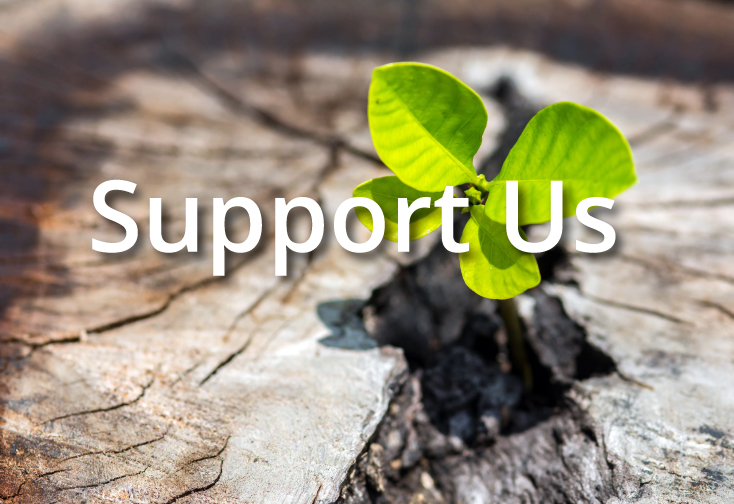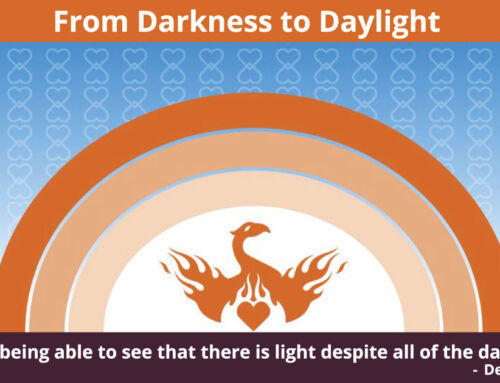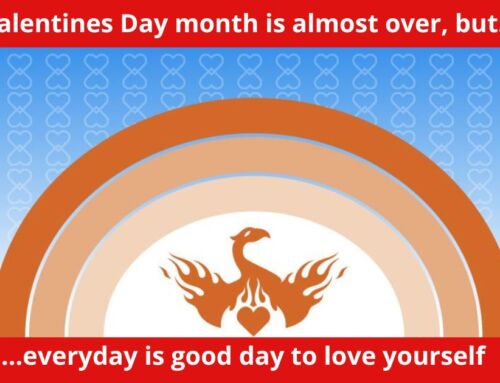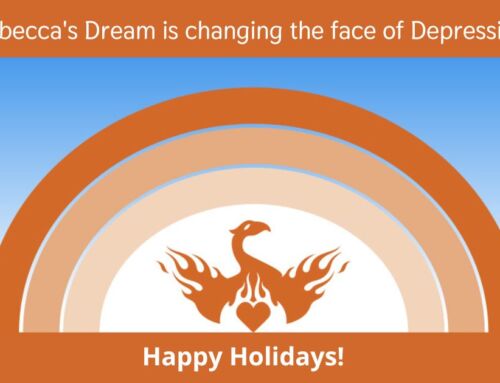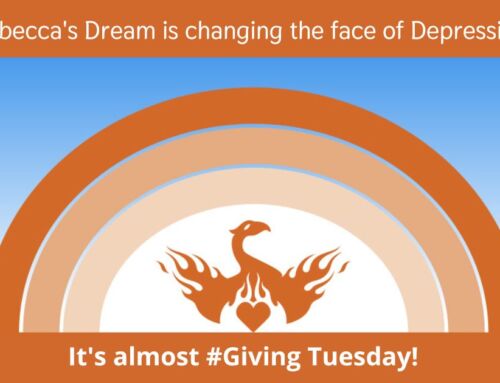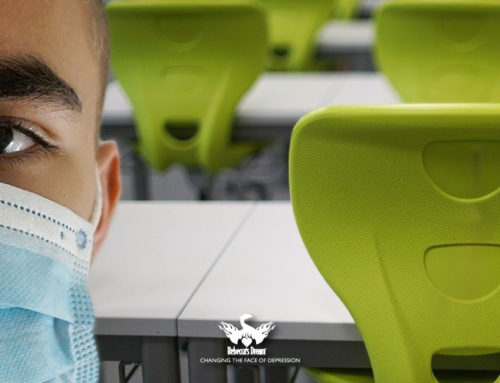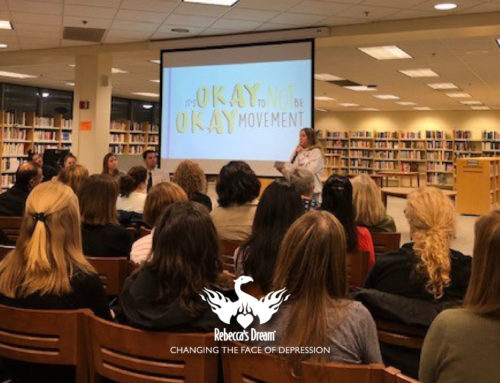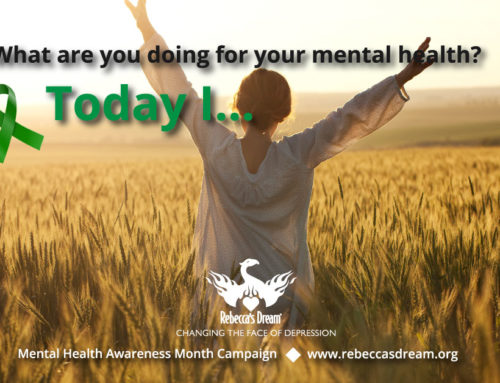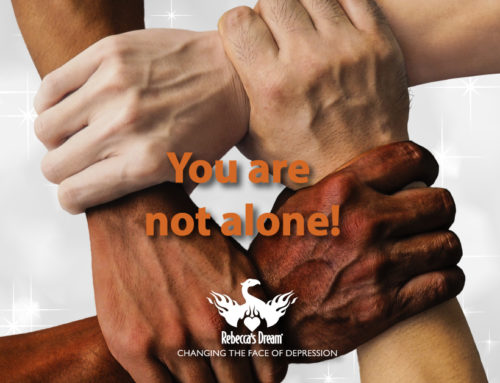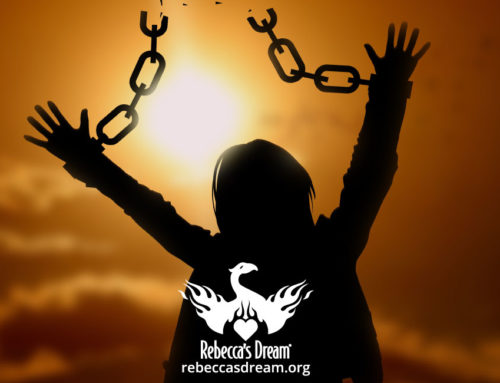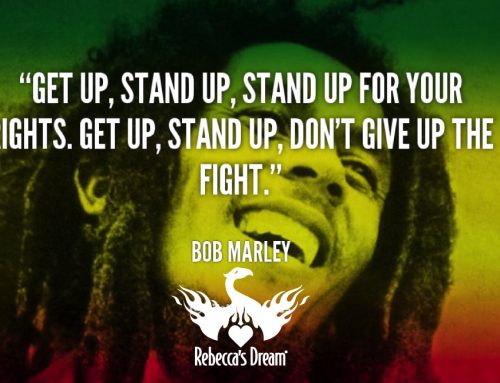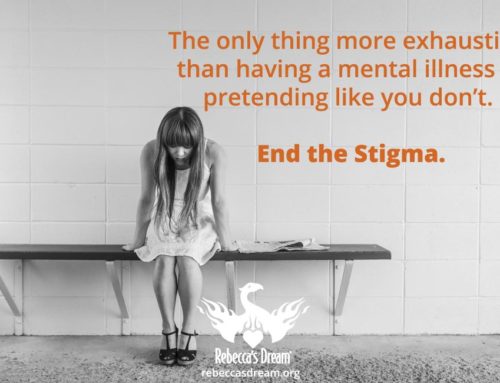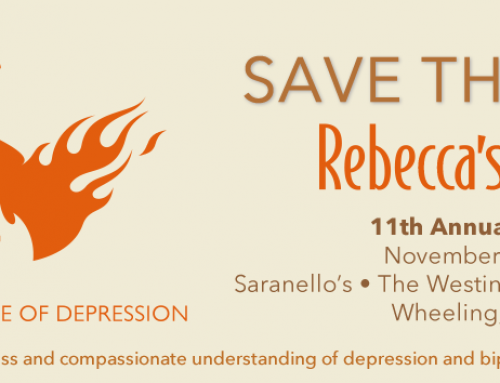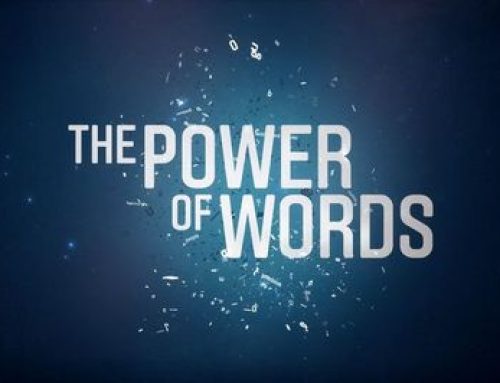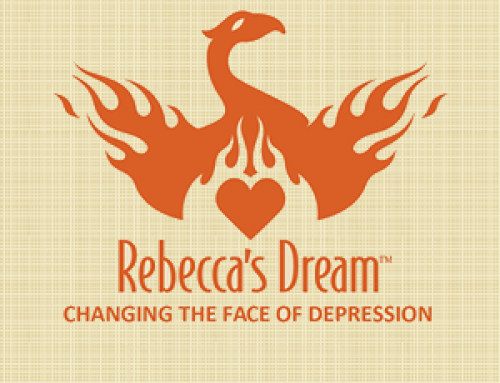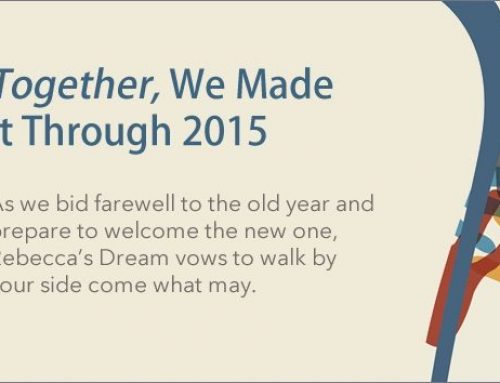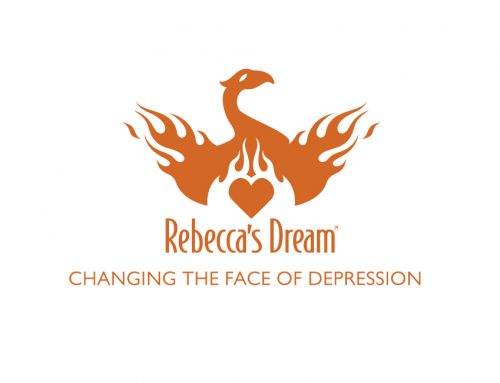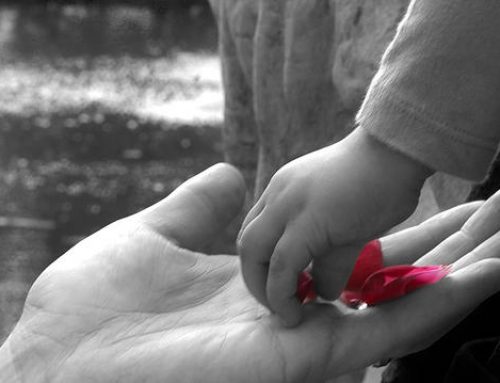ONE FRIEND, ONE PERSON….WHO TAKES THE TROUBLE TO LISTEN TO US AS WE CONSIDER A PROBLEM, CAN CHANGE OUR WHOLE OUTLOOK ON THE WORLD.”
Dr. E.H. Mayo
 Today I……
Today I……
During May, National Mental Health Awareness Month, Rebecca’s Dream recognizes all who live with mental health issues by raising awareness and compassionate understanding of depression and bipolar disorder as real diseases.
Through a social media campaign ”Today I…”, personal stories of hope, as well as, tips and techniques to improve your mental health, Rebecca’s Dream encourages everyone to live their best possible life not only during the month of May but every day of every week of every month of every year.
Your life is an occasion.
Rise to it.

Save the Date
July 12, 2018
CSO: Joshua Bell plays Bernstein’s Serenade
Join us for an evening of dinner and music at Ravinia Festival and help Rebecca’s Dream reduce the stigma of depression and bipolar disease.
“I fight for my health every day in a way most people don’t understand.
I’m not lazy.
I’m a warrior.”
– By Painted Tea Cup

Tips & Tools
“How to deal with stigma”
Source: Mayo Clinic Staff
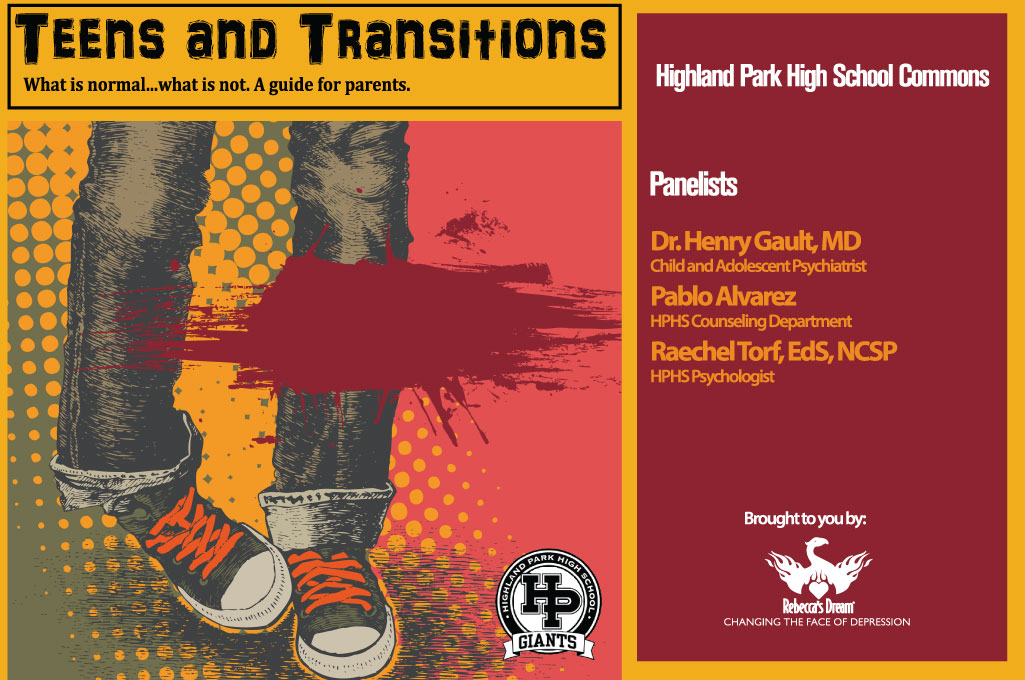
Teens and Transitions
Rebecca’s Dream presented TEENS & TRANSITIONS at Highland Park High School for parents of 8th grade students. A panel of professionals discussed managing the exciting and sometimes challenging transition from middle school to high school.
The free program was led by Dr. Henry Gault, M.D., Child and Adolescent Psychiatrist, Pablo Alvarez, Highland Park High School Counselor, and Raechel Torf, Ed.S., NCPS, Highland Park High School Psychologist.
The panel presented information on issues often encountered by transitioning teens including: social and educational challenges, academic expectations, drinking, drugs, signs of stress and depression, when to seek help and school and community resources available to help students cope. The panel also emphasized the importance of a balanced school and life schedule and how parents can help their children feel successful.
Dr. Gault stressed, “being a parent is the hardest job and our ultimate goal is for our children to be happy and healthy. By understanding educational and social pressures and being able to identify behavior changes in our children, we can better support and encourage them during this transition which may be difficult for us as parents, our teens and the entire family. The more prepared we are, the more successful the transition will be. “
Pablo Alvarez and Raechel Torf explored what freshmen students may experience during their first days, weeks and months in their new surroundings.
Mr. Alvarez discussed numerous educational and support groups available for students. Ms. Torf addressed adolescent development and how to best deal with conflicts at home.
The program helped parents recognize “WHAT IS NORMAL/WHAT IS NOT” as teens and families progress from middle school to high school.
“The information about emotional resources that HPHS offers was very helpful along with examples of how to deal with different parenting situations. Thank you.” – A.W.
Rebecca’s Dream partners with high schools to present TEENS & TRANSITIONS. Please contact killes@rebeccasdream.org for more information.

Dr. Henry Gault

Raechel Torf
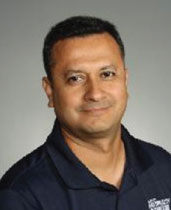


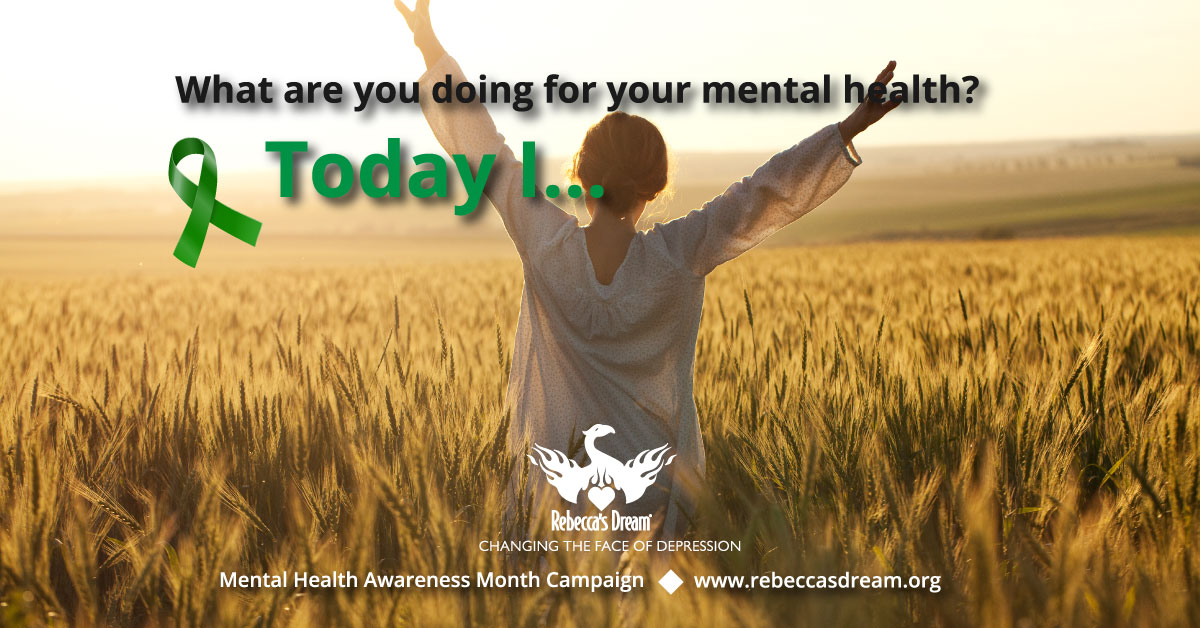
 Today I……
Today I……
